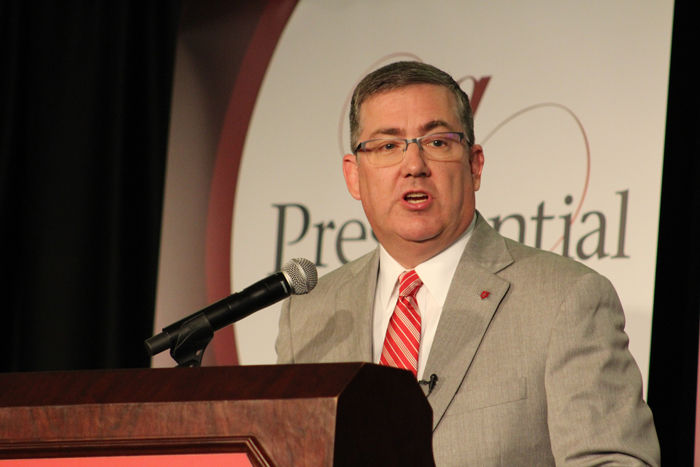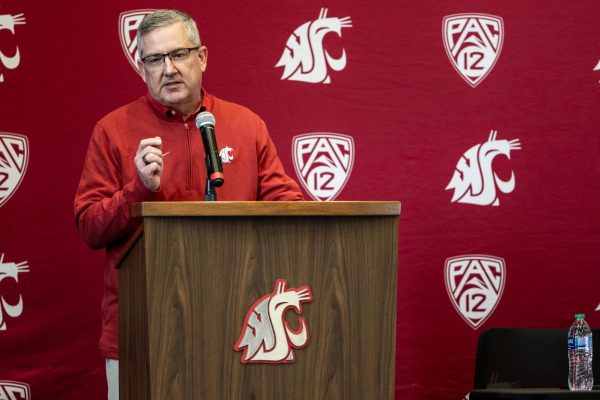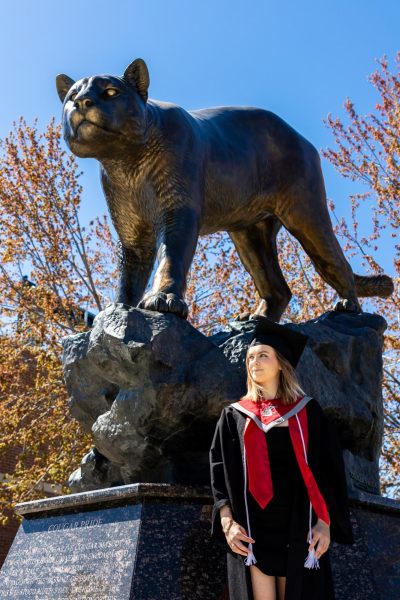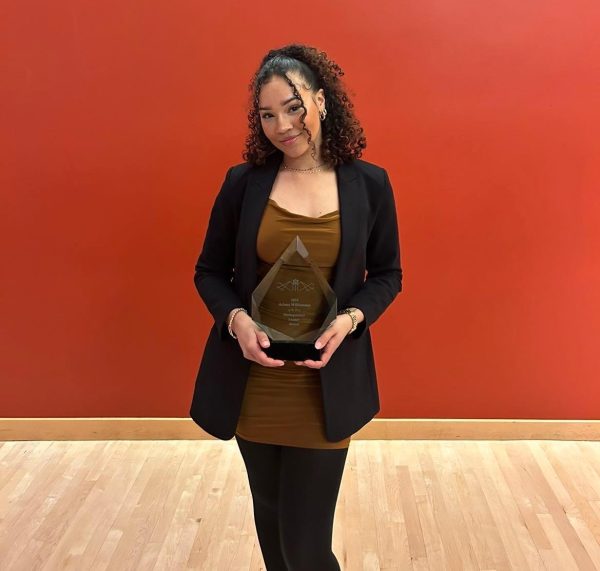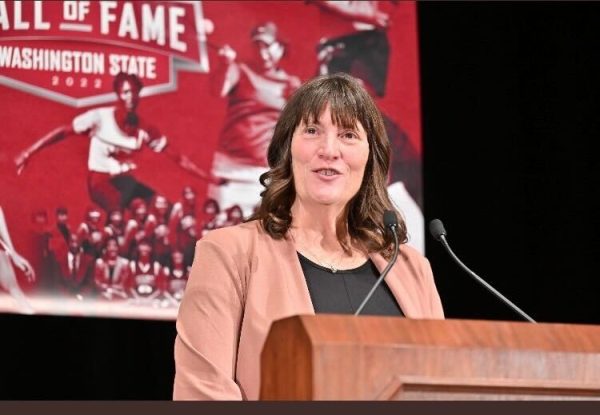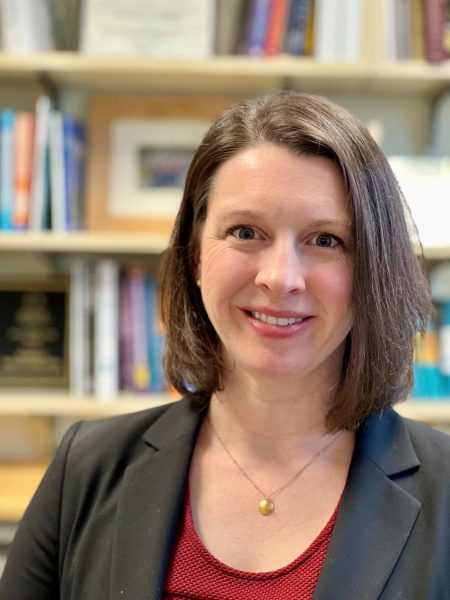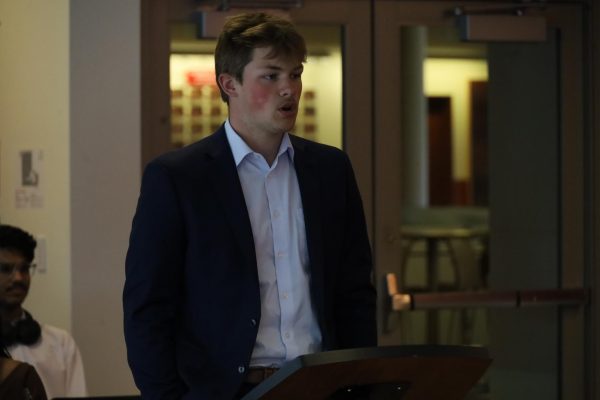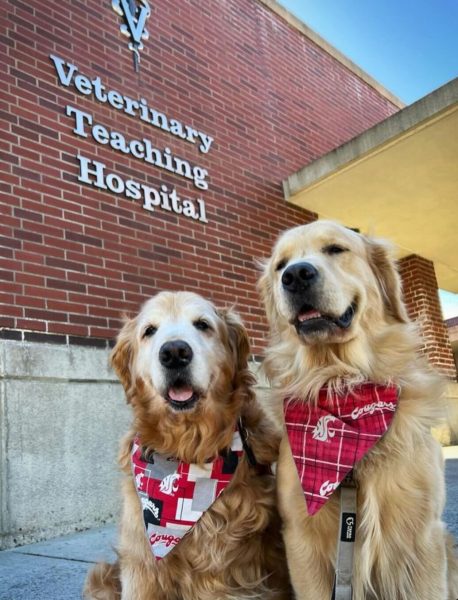Schulz criticizes university spending
WSU President-elect Kirk Schulz at a welcome event on March 31 during his first trip to the university. Schulz sent out a newsletter today detailing his first major areas of focus as president.
June 1, 2016
Incoming WSU president Kirk Schulz sent out a newsletter on Tuesday calling for decreased university spending and the reintroduction of a formalized budget process, citing what he called unsustainable budget practices.
He outlined the most harmful methods, chief among which was excessive spending on construction projects without adequate and clearly identified funding. He wrote that the university can’t rely on reserves to “make up” for uncertain funds.
“The bottom line for the future: if we don’t have all funds accounted for,” Schulz wrote, “we can’t break ground and start building new projects.”
He explained he will involve the WSU fundraising team earlier in projects and better integrate state support and private philanthropy.
“Ultimately, we will have some financial challenges over the next couple of years.”
Kirk Schulz, WSU president-elect
More preemptively, Schulz wrote that items brought to regents must be comprehensively financially analyzed.
“I will insist on this internally,” Schulz wrote, “which may mean it takes a bit longer to have fully developed proposals and initiatives.”
He addressed the athletic deficit, which has exceeded $13 million two years in a row. He wrote that he is working with Director of Athletics Bill Moos to balance revenues and expenses while maintaining a necessary level of competitiveness for the Pac-12.
“Ultimately, we will have some financial challenges over the next couple of years,” Schulz wrote. “I will work to ensure that university leadership is bringing forth reasonable solutions.”
Essentially, he wrote, the problem is the university has spent more money annually in recent years than it has brought in. One current solution is the development of an improved internal budget process, something the university has lacked for a number of years.
Despite financial difficulties, Schulz wrote that after attending meetings of the Washington State Foundation Board of Governors and Board of Trustees, he was optimistic about the university’s future.
“The highly successful $1 billion campaign wrapped up a little over a year ago,” he wrote, “and it is already time to put forth ideas about ways in which philanthropy can continue to help Washington State thrive and grow.”
He addressed major projects involving WSU, namely the airport expansion project and the Elson S. Floyd College of Medicine.
Schulz acknowledged the necessity of the Pullman/Moscow Airport for expanding research and recruitment, adding that the university is committed to expanding the airport while protecting research in facilities affected by the project.
With an accreditation visit approaching later this month for the College of Medicine, he wrote that ensuring financial support is key. University officials have agreed on a pro forma budget for the college’s first six years of operation.


